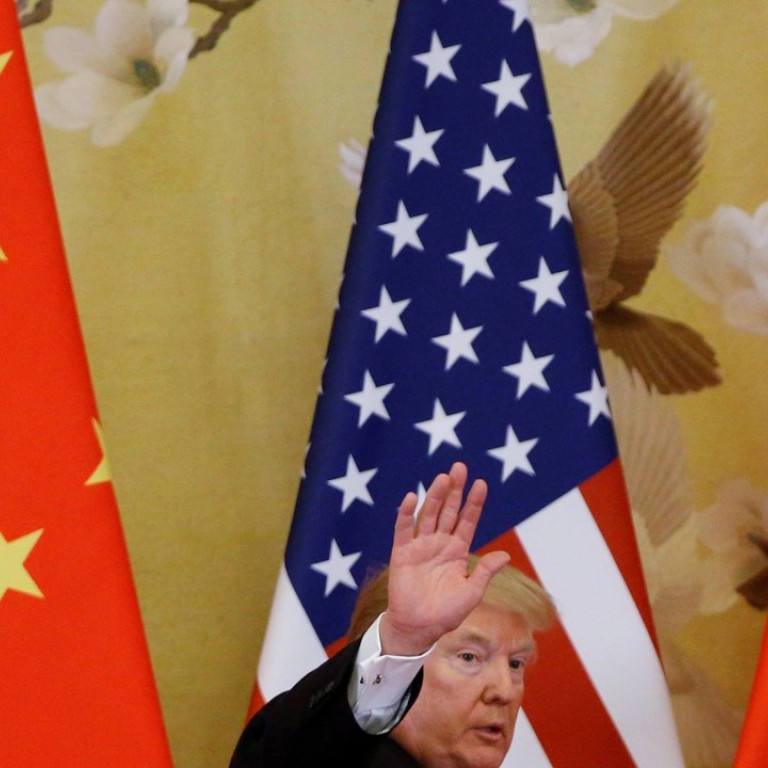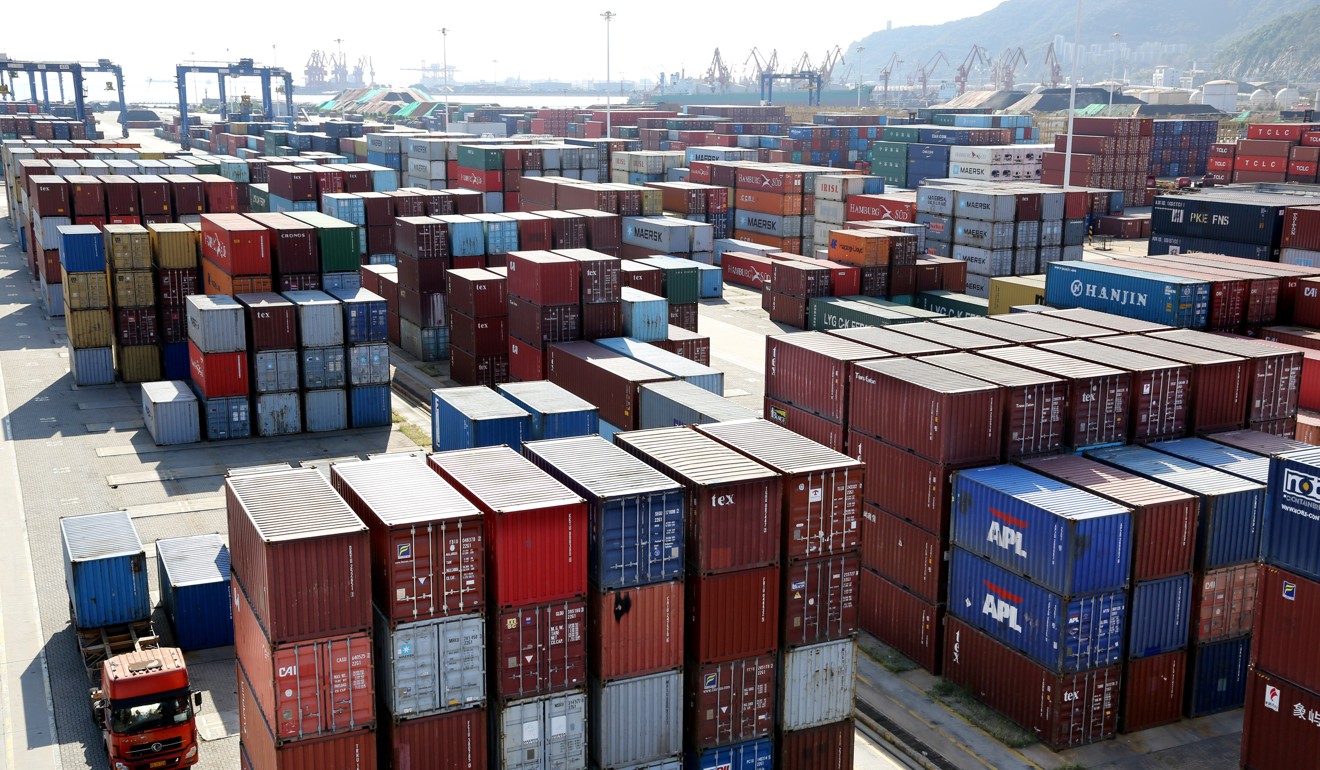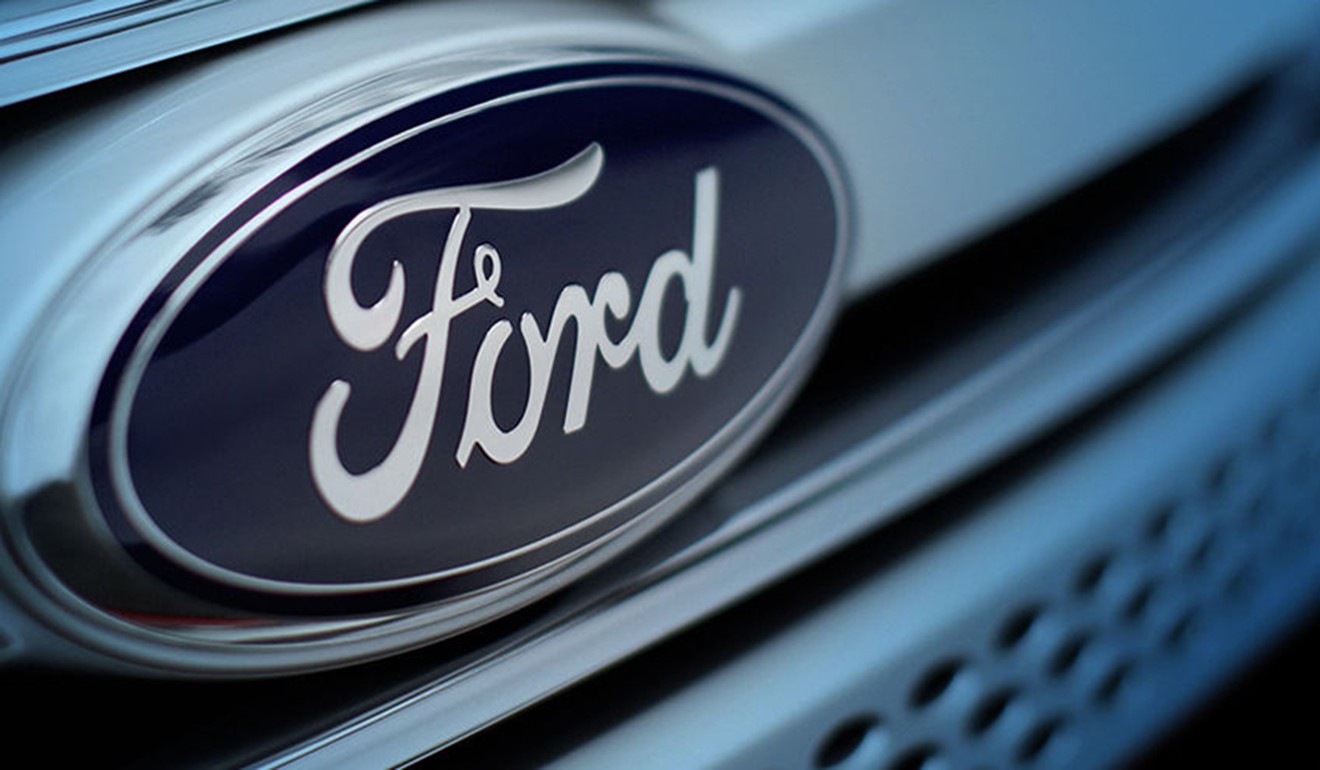
China trade outlook darkens as Donald Trump threatens total tariffs
Further large-scale US tariff measures could hit Chinese exporters hard and dent China’s GDP growth rate
China’s chances of escaping the trade conflict with the US with only minor damage to its economy just got slimmer.
On Friday, US President Donald Trump doubled down on his threats to impose higher tariffs on the nation’s goods, saying he’s ready to tax all imports “at short notice”.
While economists see the immediate impact of trade tension as limited, the effect on economic confidence may be larger, warned former People’s Bank of China Governor Zhou Xiaochuan.

Trade data for August released on Saturday echoed both the cause and effect of the stand-off with the US – the surplus with the US rose to a record, while overall export growth slowed.
A lone bright spot may be faster-than-expected import growth, signalling that domestic demand in the world’s second-largest economy is holding up for now.
“With further large-scale US tariff measures imminent, Chinese exporters will be hit hard and China’s GDP growth rate in 2019 is likely to be dented,” said Rajiv Biswas, Asia Pacific chief economist at IHS Markit in Singapore.
“If the US keeps ramping up its tariff measures against China, the export sector will face a long, hard road ahead despite government measures to mitigate the impact.”
Hours before Trump’s Friday threats, China announced measures to support some of the exporters targeted by the barrage of higher duties. The Ministry of Finance said it will raise export rebate rates for 397 goods, ranging from lubricants to children’s books, meaning that firms shipping such products abroad will pay less value-added tax. The new rates will be effective from September 15, the ministry said in a statement on its website.
Trump signalled no letup on Sunday in his rhetorical assault against China. Alluding to Ford Motor Co.’s decision to abandon the planned sale of a China-built small car in the US, he tweeted, “This car can now be built in the U.S.A.”
“The days of the US being ripped-off by other nations is OVER!” he wrote.
Chinese exporters are feeling the pain of worsening trade tensions between the world’s two biggest economies.
Data released on Saturday showed that China’s trade surplus with the US widened to US$31.1 billion during the month, according to Bloomberg calculations.
The rise came despite exports climbing at the slowest pace since March. Shipments rose 9.8 percent in dollar terms, the customs administration said on Saturday. Imports climbed 20 percent.
“Exports to the US grew at a faster pace than the previous month as exporters front-loaded orders before the additional tariffs on US$200 billion Chinese goods take effect,” said Gai Xinzhe, an analyst at the Bank of China’s Institute of International Finance in Beijing.
Faster US economic growth also pushed up demand, Gai said.
The key driver of China’s surging surplus with the US is Trump’s Keynesian stimulus when the economy was already near full capacity, said David Dollar, a former US Treasury attaché in Beijing and now a senior fellow at the Brookings Institution in Washington.
“The import tariffs are not likely to change that,” he said.
China though is wrestling with a policy-induced economic slowdown that’s collided with uncertainties over the impact of the trade war. That’s prompted leaders to ease their campaign to curb debt as they seek insurance against the risk of a future economic downdraft.

Despite a shift to policy easing, falling export growth will exert increasingly stronger pressure on Beijing, said Lu Ting, chief China economist at Nomura International Ltd. in Hong Kong, in a note on Saturday.
Because value-added exports contribute about 10 percent of China’s GDP, the incoming export slowdown indicates it may take longer for China’s growth to recover, he said.
In the event of an all-out trade war, China could be hit harder by a change in market sentiment than a direct impact from tariffs, the PBOC’s Zhou said.
“People may become nervous,” he said. “Nobody really knows. Suddenly there is a trade war. They may change their mind in terms of stock market investment.”

